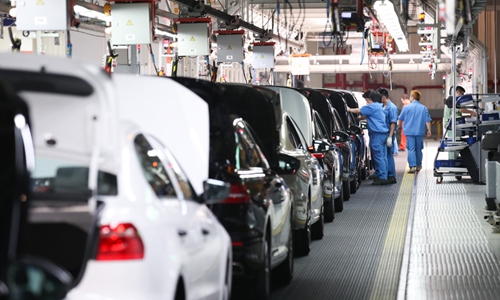Maiden auto policy of Bangladesh in final stage

Image collected
Import substitution, FDI, regional market key focus
The Bangladeshi government is set to issue the country's first automobile policy that has focused on an import substitution strategy.
Developing countries adhere to import substitution with an eye to decreasing reliance on import from developed countries.
The 10-year policy styled the 'Automotive Industry Development Policy-2019' recognises the need to explore auto export market in the SAARC and Middle-Eastern countries.
It will help develop an automotive production base with a strong domestic supply for modern, competitive and viable auto industry in Bangladesh.
The Ministry of Industries (MoI) has already drafted the policy and is expected to release it by December, people at the MoI told the FE on Thursday.
"The policy has been designed mainly to promote the local sedan car industry as it's in great demand both in the domestic and regional markets," said an official.
He said one of the key objectives of the policy is to attract foreign direct investment (FDI) in the car industry.
"We'll welcome FDI. It may either be a joint venture or a 100-per cent stake by foreign companies," said the official with direct knowledge of this development.
"We'll incentivise both local and foreign manufacturers through tax and other facilities," he told the FE.
The Chattogram-based PHP Group has recently set up an assembly plant to manufacture motorised vehicles in the country.
PHP is the first such private-sector car-making venture in the country's history.
Besides, state-owned Pragoti Industries Ltd has been producing luxury jeeps for domestic market with technical assistance from Japanese auto giant Mitsubishi.
On the other hand, the leading local two-wheeler manufacturers are Runner Automobiles, a listed company, Uttara Motors, Walton and state-owned Atlas.
According to the draft policy obtained by the FE, it will give a supportive environment for innovation and R&D (research and development) in the sector for local design and engineering.
The policy will promote local automakers that meet the standards and specifications of original equipment manufacturers (OEMs).
"We hope this (OEMs) will provide opportunities for joint ventures with global value-chain players to produce affordable brands and models in Bangladesh," said another MoI official.
He said this policy will also encourage the industry to procure new technologies and management systems to increase the sector's efficiency and productivity.
The government may include development partners, international donor agencies and private-sector organisations to mobilise necessary financing as it is capital-intensive industry, the official observed.
The long-awaited policy will be implemented over a period of 10 years ending in 2029.
To successfully execute the policy, a national council on automobile industry development will be constituted.
Industries minister will lead the council.
The policy envisions that the sector will emerge as a leader in the country with substantial contribution to the national economy.
The auto sector is expected to manufacture automobiles and automotive components with output reaching 10 per cent of the GDP by 2030, it concluded.
An estimated 3.9 million vehicles are currently plying the road across the country.
Of the number, motorcycles are 2.6 million, three-wheelers 303,315 units, four-wheelers (commercial) 630,428 units and four-wheelers (passenger) 416,856 units, according to the Bangladesh Road Transport Authority.
Source: http://www.globaltimes.cn
Previous Story
- FDI increased by 50pc in last fiscal
- Riyadh Cables Group eyes business in Bangladesh
- Fearing a loss of investment, Bangladesh assuages multinationals
- Development through partnership Committing to contribute in the...
- How to boost FDI
- Time to address youth unemployment
- FDI in apparel, textile industries
- Global free zones have challenges to contend with